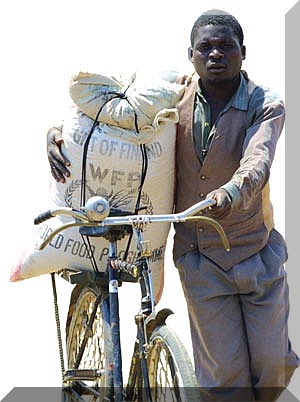Malawi’s Land Policy Headed for Catastrophe

 |
| Malawi: Headed for food dependency? Photo courtesy |
Nonetheless, the most rational position I find is that the Europeans were in the wrong, not only because they bought human beings, subjected them to inhuman conditions, and sold them, but also because they were cognisant of what they were doing. The Europeans were aware of the evils of the trade, unlike their trading partners, the naive and ignorant African chiefs. In other words, the Europeans took advantage of vulnerable people.
Today the world is “more enlightened” in that it recognises various forms of human rights and punishes those who abuse it. Working in cooperation with the governments of this “enlightened” world, are various charters and legislations that have been introduced to protect vulnerable people: women, children, people with disabilities, illiterate and the elderly.
I was appalled to learn that my beloved country, Malawi continues its “willing seller – willing buyer” land policy. The policy states that any Malawian can sell their private (freehold) land to fellow Malawians so long as the two parties agree on terms.
On a paper this policy seems very good but it is a dangerous one given Malawi’s social inequalities and it could have very serious social implications in the future.
For instance, in my home area, Malawi’s capital, Lilongwe, only six miles to the south of the city; a lot of villagers have sold their lands to affluent Malawians. The area has now got very few agricultural fields than it used to be just over a decade ago; it now boasts huge brick fences with expensive SUVs moving in and out.
Many vulnerable villagers have sold their cultivation land unaware of the future consequences at the lure of holding a few thousand Kwachas (Malawian currency) in their hands - more money than they could ever dream of earning in their lives. This paltry sum of money is never invested and it is often shared among numerous family members. Moreover, many villagers return to the land buyers to work as security guards or gardeners for meagre wages.
Apart from worsening the already huge, unhealthy gap between the haves and the have-not’s, this policy will inevitably create generations of “wage slaves,” who will have no land for cultivation, and thereby forcing them to labour for the rich. Land is the only asset poor Malawians have and selling it leaves them with nothing and nowhere to cultivate, forcing them to seek work from the rich who take advantage of the situation to impose working conditions as they please.
This is where the policy resembles the slave trade. Foresighted rich people taking advantage of vulnerable poor people who lack foresight of the actions. At least slave masters fed their slaves so they could be strong enough to work again the following day. Landowners will not be worry about feeding their workforce; workforce will outstrip demand.
These issues cannot be overlooked any longer. If we consider world growth indicators, the future is quite bleak. According to a recent report by the United Nation’s Food and Agriculture Organisation (FAO), “40 years from now the world will need to produce twice as much food to feed us all.” And today over a billion people around the world are already without food.
As for Malawi, the World Food Programme already estimates that 45 percent of Malawians – nearly half the population – will be without food between now and December 2010. This appeal has come at a time when Malawi has been reported to have an average of 3.1 metric tones of surplus maize in the last three harvesting seasons. Yet the WFP’s estimated 45 percent of hungry people in the country could double in 40 years time, as FAO has projected.
Furthermore, Oxfam estimates that about 86 percent of the 13 million Malawians depend on rain-fed agriculture. This is even more worrying given that the current trend indicates that poor people will inevitably have even less land for cultivation, as families grow and children are born in landless families. The 2008 population and housing census confirms this population growth.
As the Malawi population continues to grow, there will be more poor mouths to feed and less land for cultivation. Any form of agriculture requires land. How will these landless, vulnerable people fend for themselves? This is a pure recipe for catastrophe – there will be no peace!
The question is who is to blame? Do we blame the vulnerable villagers who lack foresight for “willingly selling” their land or the foresighted “willing buyers” who are taking advantage of the situation?
The truth is, this land policy can only work in places where all people have the same intellectual capacity. This is not the case in Malawi; there is huge gulf between literate and illiterate people.
My question is: what is the government doing about it? Maybe I have missed something? The government’s role is to protect vulnerable people. Let us heed Albert Einstein’s call: “strive not to be a success, but rather be of value.” And the value of any government is to protect its vulnerable populations.
By Jimmy Kainja
Jimmy Kainja is a Masters of Research (MRes) graduate in Media and Communications at London Metropolitan University.
